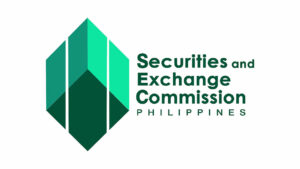




January Economic Update: Growth slows, prices rise
 DOWNLOAD
DOWNLOAD

Inflation Update: Up, up, and away?
 DOWNLOAD
DOWNLOAD

Quarterly Economic Growth Release: Growth takes on a slower pace
 DOWNLOAD
DOWNLOAD


SEC proposes revised fee plan for registrants

The Securities and Exchange Commission (SEC) is planning on implementing a revised structure for its regulatory fees and charges for registered firms and entities.
“There is a need to restructure the SEC fees and charges at a level commensurate with the cost of regulating the corporate sector and capital market for continuous improvement of the Commission’s performance, sustainability of operations,” the regulator said in a draft circular.
The SEC added that the move is in line with the fulfillment of its legal mandate pursuant to the passage of the Revised Corporation Code of the Philippines (RCC). The RCC provides the authority of the regulator to collect, retain, and use fees, fines, and other charges.
It said under Section 179 of the RCC, the commission has the power and authority to formulate and enforce standards, guidelines, policies, rules, and regulations to carry out the provisions of the code.
The commission also has the authority to exercise such other “powers provided by law or those which may be necessary or incidental to carry out the powers expressly granted to it.”
It added that the draft is pursuant to the guiding principles set in a joint circular by the Department of Finance, Department of Budget and Management, and National Economic and Development Authority.
“The commission, imposes fees and charges constituting delivery of services to its stakeholders which entails costs, and equity requires that persons, natural or juridical, receiving or benefiting from rendered services share the cost of providing such services,” the SEC added.
Under the proposal, registration, licensing, accreditation, and other related transactions are imposed a new schedule of fees for registered entities.
In a separate release, the SEC said that it had secured the conviction of eight officers of Phil86 Gurunanak Lending and Trading Corp. for the falsification of its registration documents.
The SEC said that the Pasay City Regional Trial Court Branch 112 fined each involved individual P10,000 for the violation of Section 12, Paragraph 3(a) of Republic Act No. 9474, or the Lending Company Regulation Act.
The regulation states that any officer, employee or agent of a lending company who knowingly and willingly makes any false or misleading statement with respect to any material fact in any application, report, or document required under the law, will be penalized.
The regulator found that Phil86 submitted a certificate of bank deposit amounting to P1 million, but upon verification, no certificate was issued.
“This marks the 10th conviction scored by the SEC for violation of the LCRA, with a total of 86 individuals already convicted,” the commission said. — Adrian H. Halili
This article originally appeared on bworldonline.com





 By BusinessWorld
By BusinessWorld